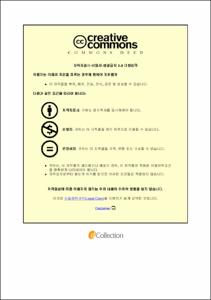사회연결망 분석 기법을 이용한 프로젝트 기반 수업에서의 교우 관계 분석
- Alternative Title
- University students' relationships in the project-based instruction using social network analysis
- Abstract
- Nowadays, the characteristics of university students make a relationship only with their friends as a small group. Teamwork is one of the important features as an expert human resource required in the industry field of content creation.
The purpose of this study is an analysis of relational structure among friends including the best friend, learning helper, life adviser, and team members and to establish a teaching strategy for improvement of relationship with students who do not want to make a relationship. We investigate the shape and effect of peer relationship structure on learning and interactive teamwork based on social network analysis theory. We examine how peer relationships change during the process of a course with a small project. We also examine how the degree of connection affects the learning activities and the derivation of teaching outcomes. That is one of the factors affecting learning in project-based instructional style requiring cooperative learning.
The objects of this study are twenty-one students who participated in the game project I lecture at Y University. They write three friends names as their best friend, learning helper, life adviser, and team member in the sheet. We analysis the collected data to network structure using the UCINET 6.0 tool, one of the social network analysis tools.
Friendship ties have had a major impact on academic achievement. It can be extended to new opportunities based on the availability of useful information, access to resources, useful information obtained, and cohesiveness and cooperation formed through it. In this way, the learner's attitude in project-based collaborative learning is shown to be an important factor in increasing interaction between learner and learner.
The class based on the project-based form showed that the learning satisfaction was highly evaluated and effective learning method because the students were led and actively participated. It was also an opportunity to learn how to achieve a successful school life, and a successful organizational life, with no problems in reaching the goals of the lessons, enhancing self-directed learning achievement.
In the comparison of the strong and weak networks, the strong network shows the influence of the information in the case of the academic achievement factors, but the weak network shows the low effect in the diversity of the information acquisition required for academic achievement. Students with weak connectivity have a place to make fellowship through individual counseling and have played a role as a teacher to avoid alienation from teamwork.
The higher density of the network makes more frequent communication and contact between members. This showed an effective cooperation system to find the time and the way to find solutions for problems that occurred during the project process. The more interdependent members are, the more interdependence among team members increases and the increased interdependence ultimately promotes cooperation, thereby increasing team performance.
Further research requires in-depth studies on the analysis of characteristics and learning styles of university students, the development of strategic learning support programs, and the improvement of learning consulting including life guidance, team-based project instruction, and so on.
- Issued Date
- 2019
- Awarded Date
- 2019. 8
- Type
- Dissertation
- Keyword
- 관계 구조(relational structure) 교우 관계 분석(friendships analysis) 프로젝트 기반 수업(project-based learning) 사회분석망(social network analysis)
- Publisher
- 부경대학교
- Alternative Author(s)
- Chae Young Soog
- Affiliation
- 부경대학교 대학원
- Department
- 대학원 교육컨설팅협동과정
- Advisor
- 허균
- Table Of Contents
- Ⅰ. 서 론 1
1. 연구의 필요성 및 목적 1
2. 연구 문제 4
Ⅱ. 이론적 배경 5
1. 교우 관계와 협동 학습 5
2. 게임 수업에서의 프로젝트 기반 학습 이론 8
3. 사회 연결망 이론 10
Ⅲ. 연구 방법 24
1. 연구 설계 24
2. 연구 대상 26
3. 자료 수집 절차 31
4. 자료 분석 방법 38
Ⅳ. 연구 결과 39
1. 교우 관계의 특성 39
2. 친구 관계 네트워크의 구조 변화 분석 44
3. 학습도우미 관계 네트워크의 구조 변화 분석 51
Ⅴ. 결론 및 제언 56
1. 결론 56
2. 제언 60
참고문헌 61
- Degree
- Master
- Files in This Item:
-
-
Download
 사회연결망 분석 기법을 이용한 프로젝트 기반 수업에서의 교우 관계 분석.pdf
기타 데이터 / 1.33 MB / Adobe PDF
사회연결망 분석 기법을 이용한 프로젝트 기반 수업에서의 교우 관계 분석.pdf
기타 데이터 / 1.33 MB / Adobe PDF
-
Items in Repository are protected by copyright, with all rights reserved, unless otherwise indicated.